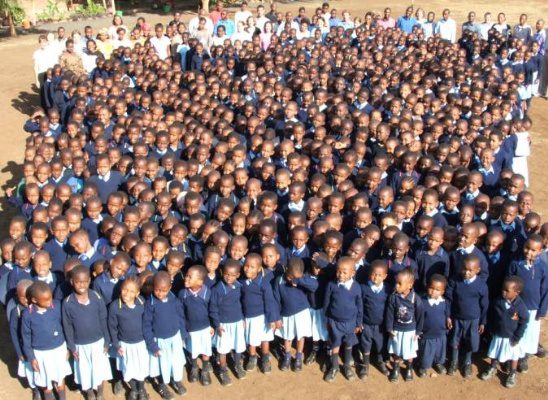
Back in 2006, The School of St Jude held its first ever St Jude’s Day, a day for thanksgiving, celebration and sharing. The whole school, which numbered just 662 primary students and 114 staff at the time, gathered for a service, entertainment by students and a special meal.
Sixteen years later, and the general format for the day has remained the same, but almost everything else has changed! In 2022, the school numbers 1,800, with more than 300 staff.
Back in 2006, St Jude’s catered to the first five years of primary school, but today St Jude’s comprises three schools; one primary and two secondary. Now, St Jude’s Day is held at each school on a rotating basis, and in 2022, the event was held at St Jude’s Girls’ Secondary School.
Though St Jude’s is a relatively young school, its traditions, like the annual St Jude’s Day celebration, have a special role in the school community.
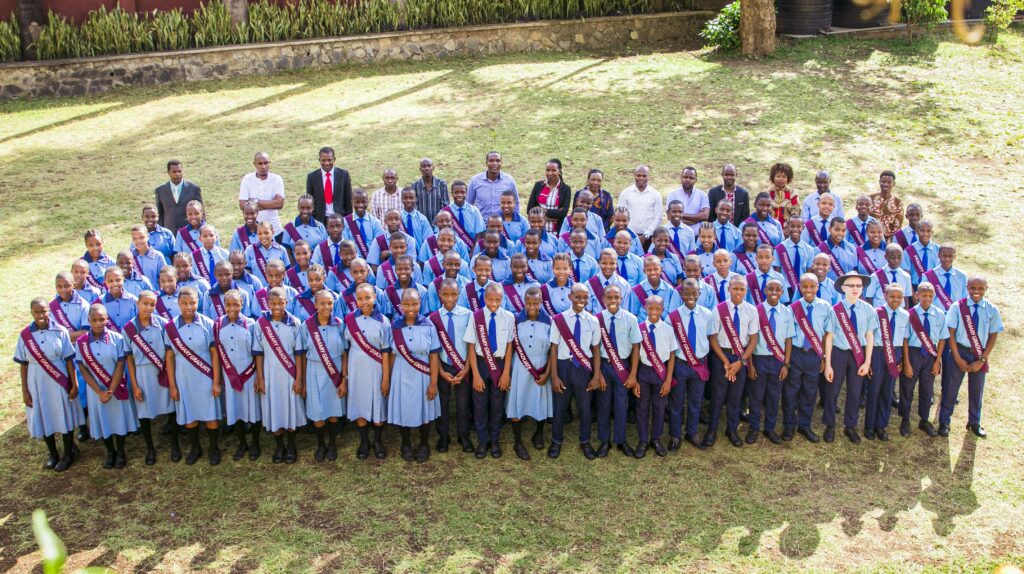
In Tanzania, Standard 7 National Examinations are incredibly important. Not only do they mark the end of primary school, but for government school students, a good result means a ticket to secondary school, while a fail grade can mean the end of formal education.
In October, St Jude’s current Standard 7 class will sit these important exams. St Jude’s has a history of great performance in Standard 7 examinations, which goes all the way back to the first class to sit them in 2008. Over the last 14 years, 100% of St Jude’s students have passed, with many receiving top marks.
Last year, 86% of St Jude’s primary students scored A grades in all subjects, which placed the school within the top 0.1% nationally.
Back in 2008, Enock was among the first St Jude’s students to sit their Standard 7 National Examinations. In a sign of things to come, Enock was top of his class and among the top 10 students in Arusha.
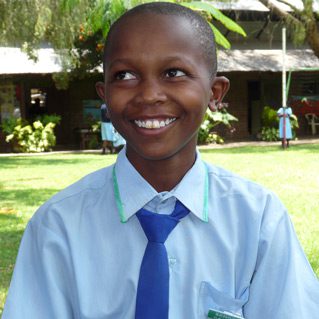
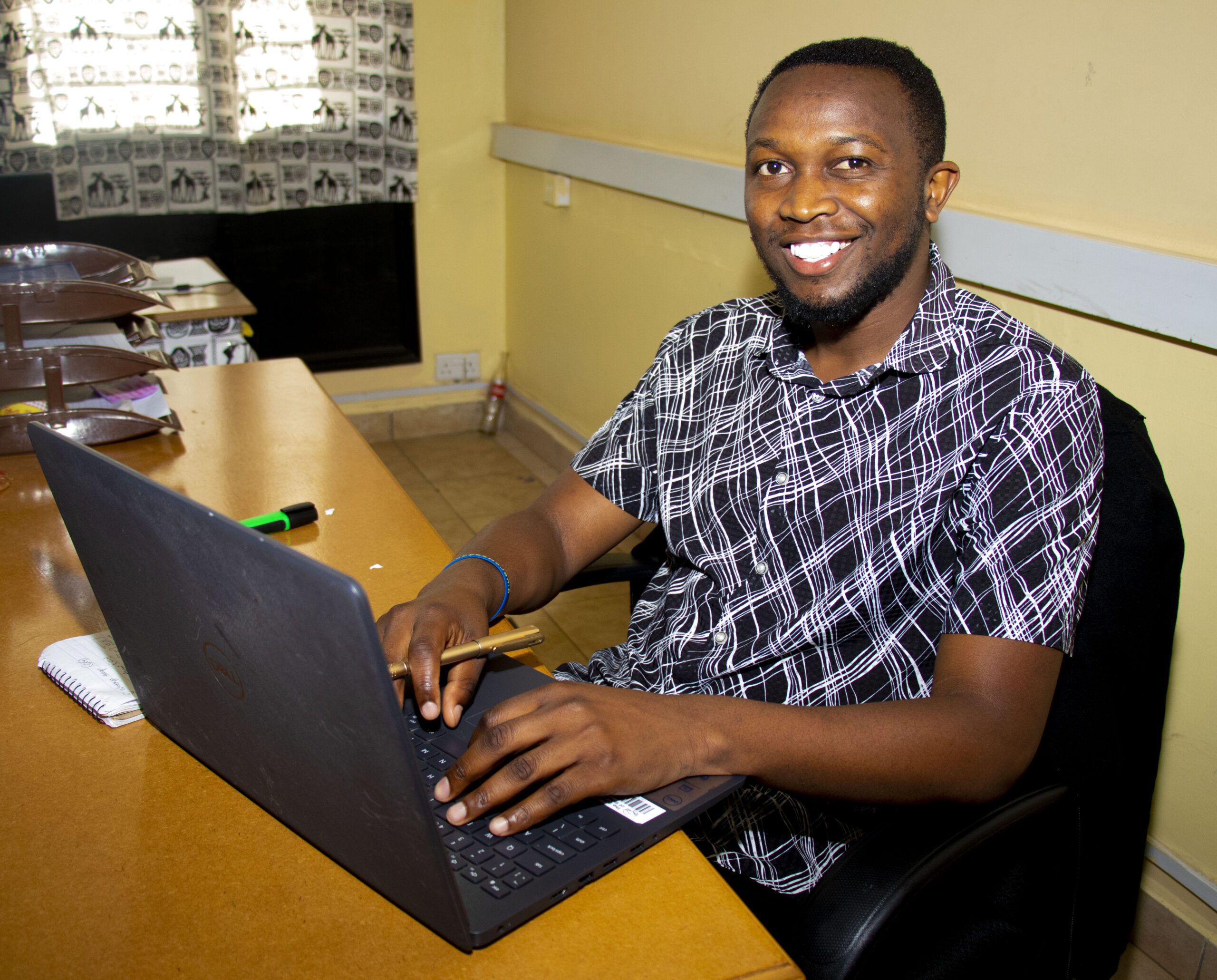
“Primary education determined my path. Because of the strong foundation I got, it helped me move forward and opened gates for many more opportunities," says Enock.
Today, Enock is back at St Jude's, where he works with alumni to secure international scholarships for tertiary education.
"The feeling of being back at St Jude's is nostalgic. I get a sense of satisfaction knowing that I am back where it all began," says Enock with a smile.
“I would like to tell this year’s Standard 7 students that they are all excellent with amazing strengths. They have worked hard for the exams and I have total faith in their abilities. I wish them all the best,” he adds.
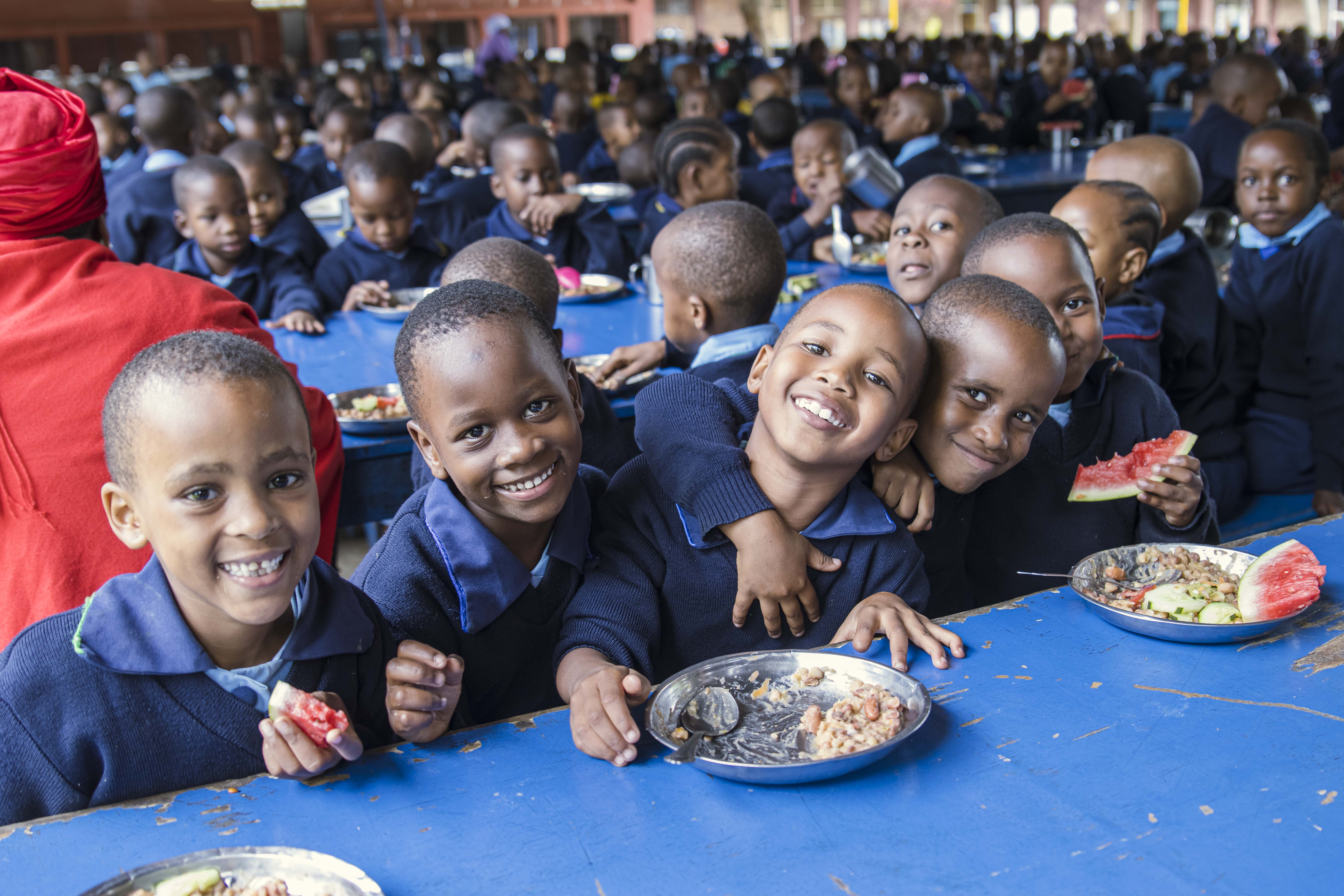
Motivated, healthy and happy students start with daily, hot and nutritious meals, regular health check-ups and physical activity.
With generous support from St Jude’s supporters, the school gives scholarships that cover more than academics, but also provide students with daily nutritious meals and health and welfare support, ensuring their present wellbeing and future success.
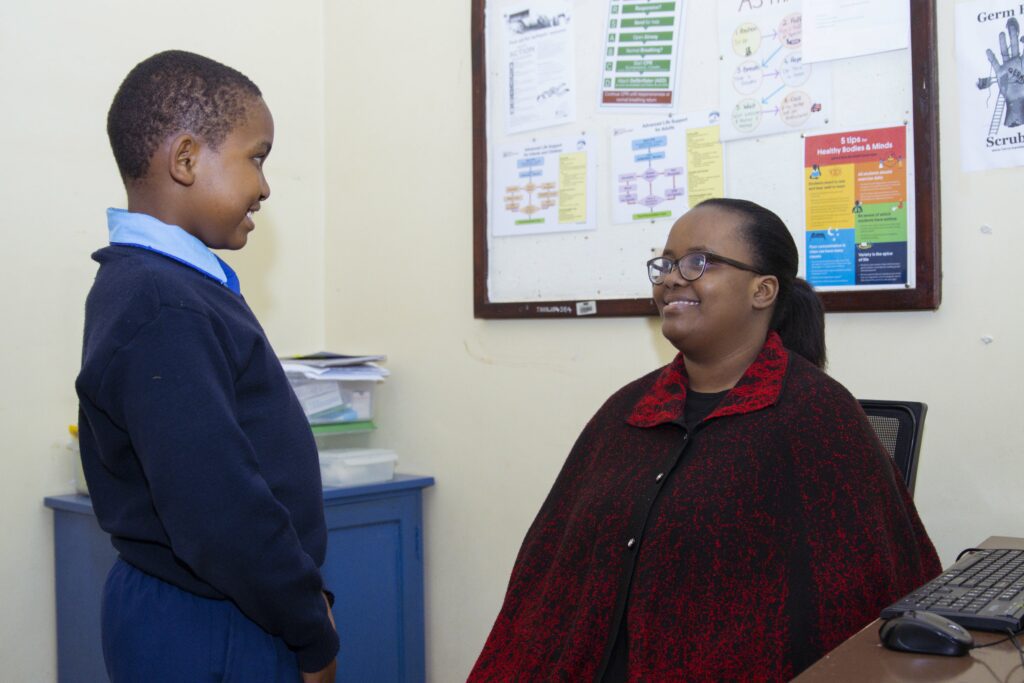
“It’s satisfying knowing that I’m contributing in ensuring that we have healthy students who are likely to perform well in their academics,” says Lisa, who coordinates the Health and Welfare team.
“As Coordinator, I work with the team to make sure that all health and welfare cases are well monitored, recorded and where possible communicated with school leadership. I organise our school counsellor’s monthly schedule so that the needs of the students are well met. I assist with hospital visits of serious health cases and special diet when needed,” Lisa elaborates.
Part of the Health and Welfare team’s role is to organise annual checks on students, including monitoring height and weight. “With the help of the health check team, who mostly come from Australia, we check eyes, ears, skin and flag any other health issues,” Lisa explains.
The team also provides health education on various health topics in secondary schools and oral hygiene workshops for Standard 1 and 2 (the first two years of primary school) students, and reinforces of the school’s Child Protection Policy.
“To make sure our students remain healthy, we discuss health issues of students with their parents and where possible and applicable they get counselling from our school counsellor as a group session,” Lisa states.
While St Jude’s is primarily an educational institution, students who receive academic scholarships come from poor backgrounds where families are particularly susceptible to range of physical and psychological issue.
“It honestly feels great working in line to support the school’s mission, vision and strategic plan,” she adds.
Understanding that nutrition influences student’s learning potential, the school puts special emphasis on healthy and nutritious meals.
The school serves more than 26,000 hot meals to students and staff every week - that makes up more than one million meals served each year!
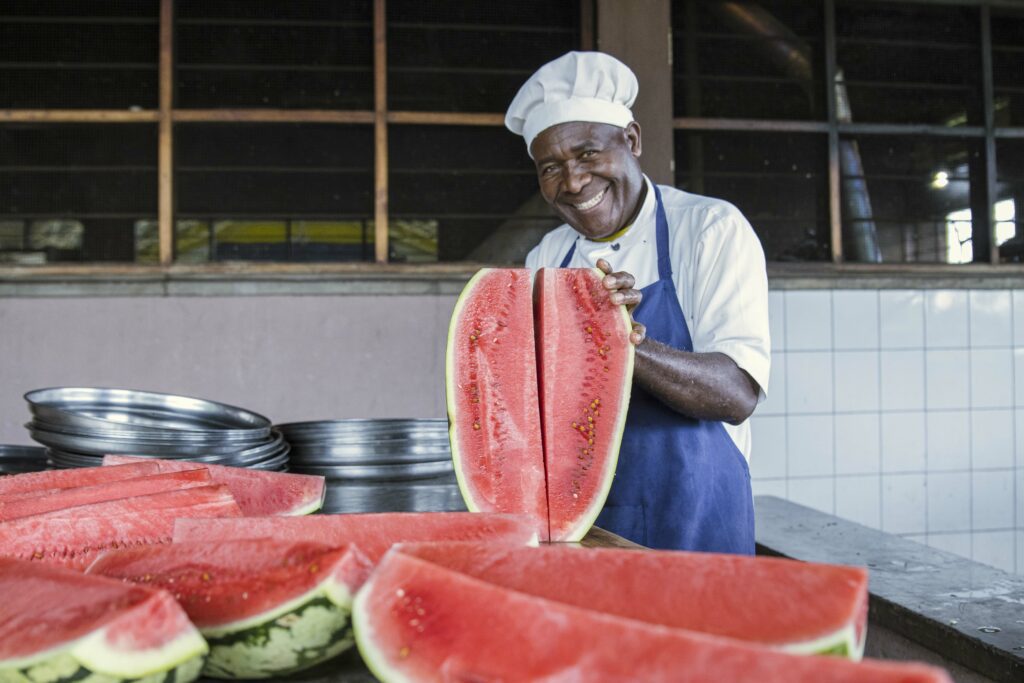
“Every month we serve almost 7,000 kilograms of beans, nearly 6,000 kilograms of rice and nearly 17,000 kilograms of vegetables and fruits,” says Julius, the Head Cook at Sisia Campus.
Julius, who has been with St Jude’s for ten years, knows the importance of offering nutritious meals to students. “I’m proud to be serving these healthy meals to students every day. I see them growing up and I know that my meals are helping them grow big and strong.”
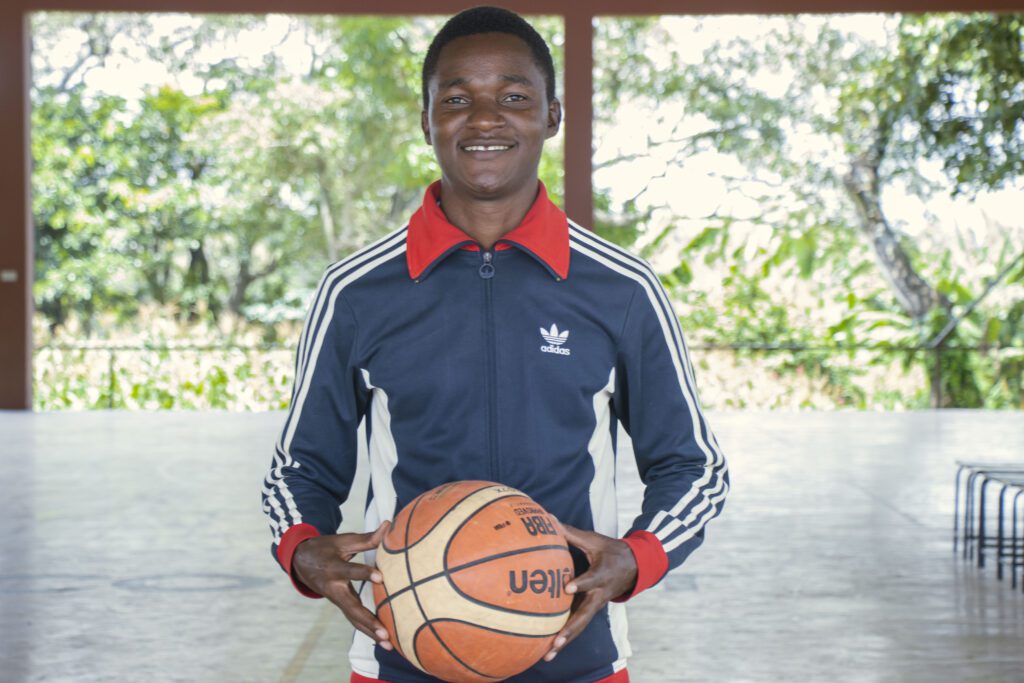
Students' health is especially important for teachers who are providing the support in physical education (PE) and sports.
“Research shows that students who participate in sport and other extracurricular activities have favourable mental health compared to inactive students,” explains Mr Paul, Head of Sports at St Jude’s Secondary School.
“Participation in sports and physical activities at a young age encourages positive cognitive development in youth-developing and learning to use the core skills of the brain to think, read, learn, remember, reason and problem-solving,” he adds.
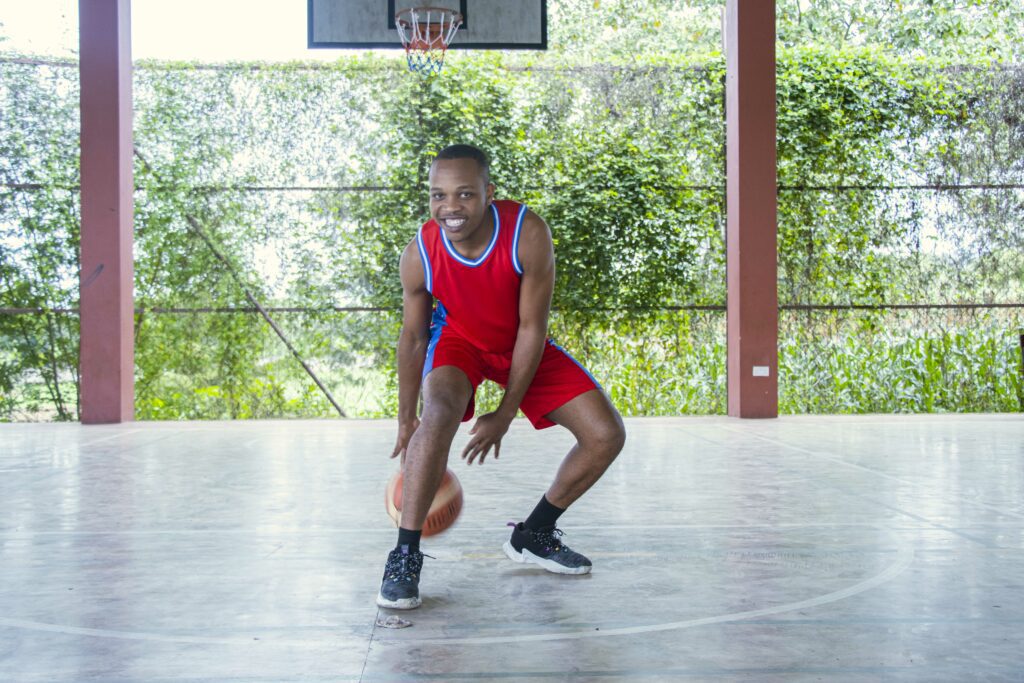
As part of a holistic education, the school prioritises sports in students' lessons, ensuring they develop the skills and self-confidence to become future leaders in Tanzania.
"Sports help me to be more motivated, and focused. Also, I have gained teamwork skills,” says Kelvin.
Kelvin is in Form 5 and loves playing basketball during his free time. “I started playing basketball when I joined St Jude’s in Form 1. Before that I couldn’t play the sport because the government school I came from did not have sports facilities,” he states.
St Jude's strives to nurture students who are healthy, motivated, and have academic and moral excellence. By providing a strong, healthy foundation, St Jude’s is setting up students for long term success.

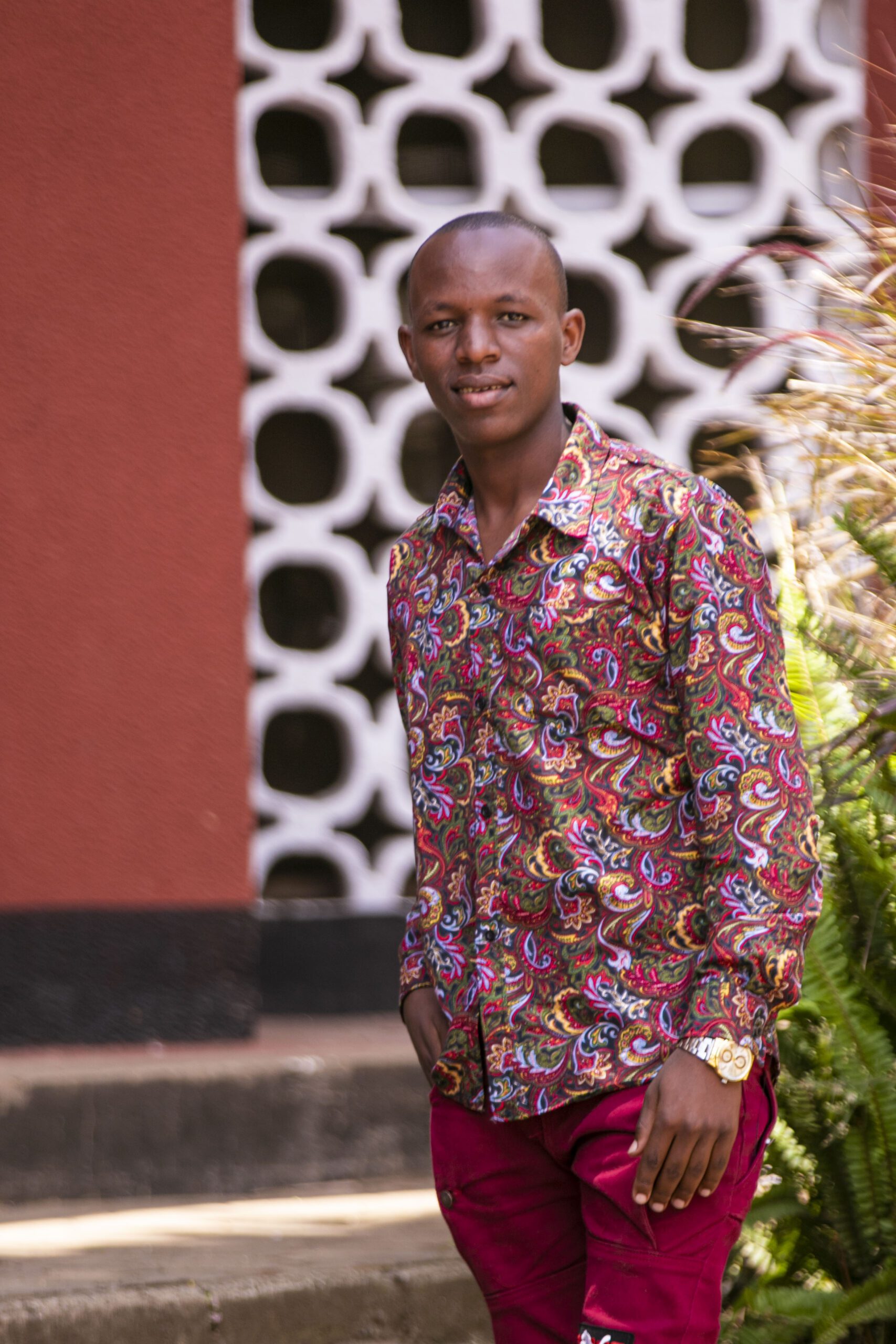
Coming from a family of 10 in a rural area outside Arusha, Salim did not have high hopes for his education or his future. This changed when he met Furahini, a St Jude’s alum Salim now calls his mentor.
When the two met in 2017, Furahini was a Community Service Year (CSY) volunteer teaching at Kimnyaki Secondary School and Salim was his student. The CSY is the first part of the Beyond St Jude’s Scholarship Program (BSJSP), St Jude’s program for secondary school graduates. During the CSY, volunteers share their skills through volunteering on campus at St Jude’s, or as teachers in government schools.
“I wouldn’t have had any hope of joining St Jude’s if it wasn’t for Furahini,” says Salim. “He’s played a big role in changing my life.”
“He was my physics and biology teacher when I was in Form 4. He motivated me and pushed me to increase my efforts in my studies. He also gave me hope, showing me that if I did well academically, I could get the chance of getting a scholarship to St Jude’s and sure enough, this dream was made a reality,” he beams.
After attending seven years of government school for primary, and another four years of secondary, Salim was invited to apply for a St Jude’s scholarship to enter in Form 5, the penultimate year of secondary school. Encouraged to study hard by Furahini, Salim passed through St Jude’s Scholarship Application Process with flying colours.
Form 5 is the final opportunity to enter St Jude’s, so it was a special moment when Salim was offered a scholarship to start at St Jude’s in 2018. Coincidentally, Furahini also joined St Jude’s in Form 5, just three years earlier, in 2015.
“I couldn’t believe it when I was told I got the scholarship. I knew then that my future had been changed,” Salim recalls.
“Furahini’s tireless contribution in teaching me and mentoring me through my last year in my government school had a huge impact, not only on my life, but on my family’s life. I can never forget his help,” Salim shares.
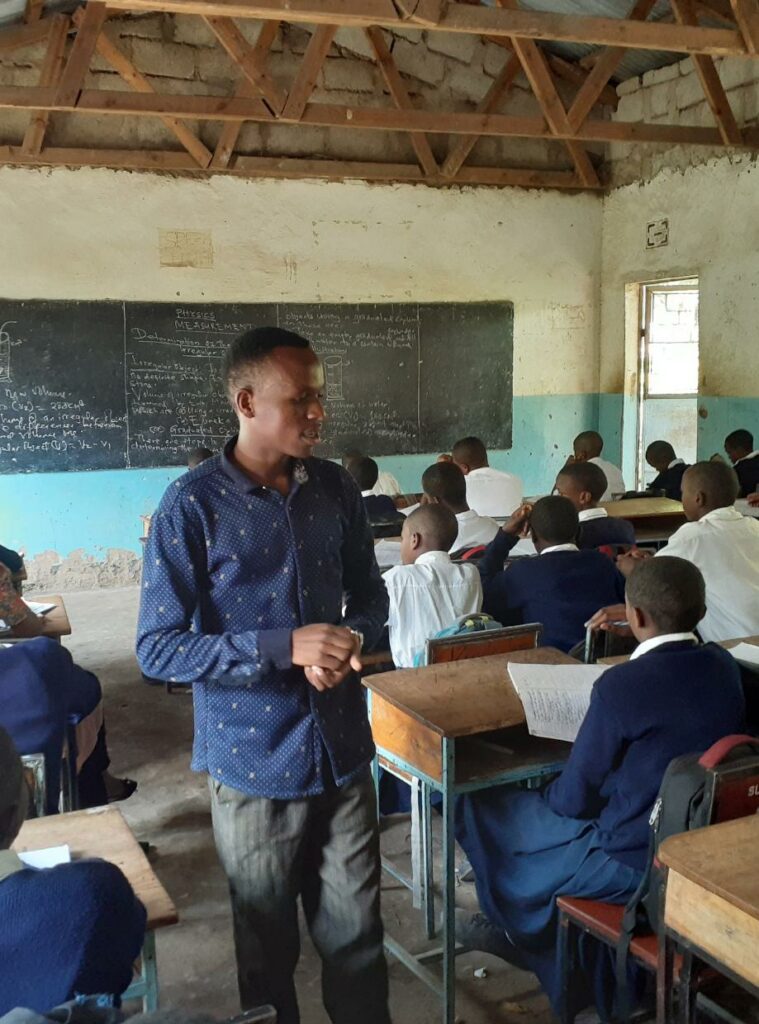
Like Furahini before him, Salim has a mind for science, and chose to pursue physics, chemistry and biology during his two years of studies at St Jude’s. After graduating in 2020 with impressive marks, he chose to follow in his mentor’s footsteps and began his CSY as a volunteer teacher back at Kimnyaki Secondary School, where he had once been a student.
“Volunteering in a school that I once went to was exceptional. Having studied there, I already knew the environment and challenges. My presence covered the shortage of science teachers and I also helped out as a sports coach,” Salim explains.
During his CSY, Salim taught physics sharing the skills and knowledge he received at St Jude’s.
“Almost 98% of students that I helped during my CSY managed to pass their final exams, and for that I’m happy and grateful,” Salim adds, rightfully proud.
Today, Salim is a tertiary scholar, pursuing a degree in medicine in one of the biggest universities in Tanzania with the support of BSJSP. In just a few years, he’ll be a doctor, serving the people of Tanzania.
“I can honestly say without Furahini walking into my life and St Jude’s providing me with the scholarship, this would not be possible. Many thanks to Furahini, the St Jude’s community and Mama Gemma for making this journey possible for me,” he says.
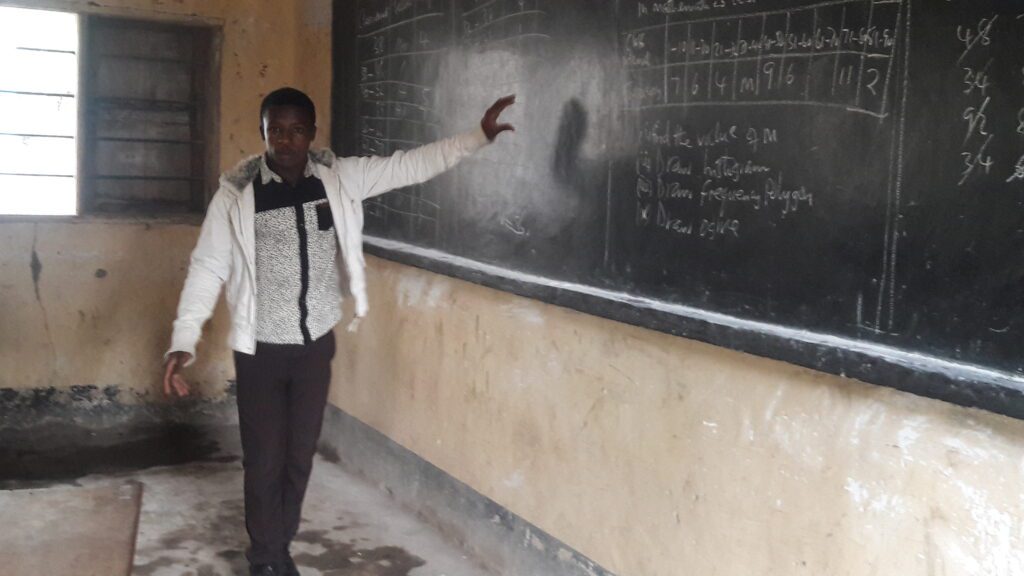
One step ahead of Salim is Furahini, who completed a Diploma of Clinical Medicine last year.
“My aspiration in life is to be a health care provider and building my own health centre,” Furahini shares.
Furahini plans to make a big positive impact in his community, but the impact he has already made on Salim cannot be underestimated.
“I was so grateful when Salim was offered the academic scholarship at St Jude’s,” smiles Furahini. “I remember when he shared the news with me, I asked for us to meet so I could congratulate him in person and talk about his future. I’m proud of him, from where he’s come from, to the leader he is shaping up to be,” he says.
Over the last 20 years, there have been many wonderful stories like Furahini and Salim’s; stories of students becoming leaders and sharing the gifts they have been given to help others, in big and small ways.
How could Furahini have known, in 2017, that with his encouragement and a St Jude’s scholarship, the studious but disadvantaged boy in his class would become a much-needed doctor for Tanzania? This is St Jude’s work coming full circle. This is fighting poverty through education.
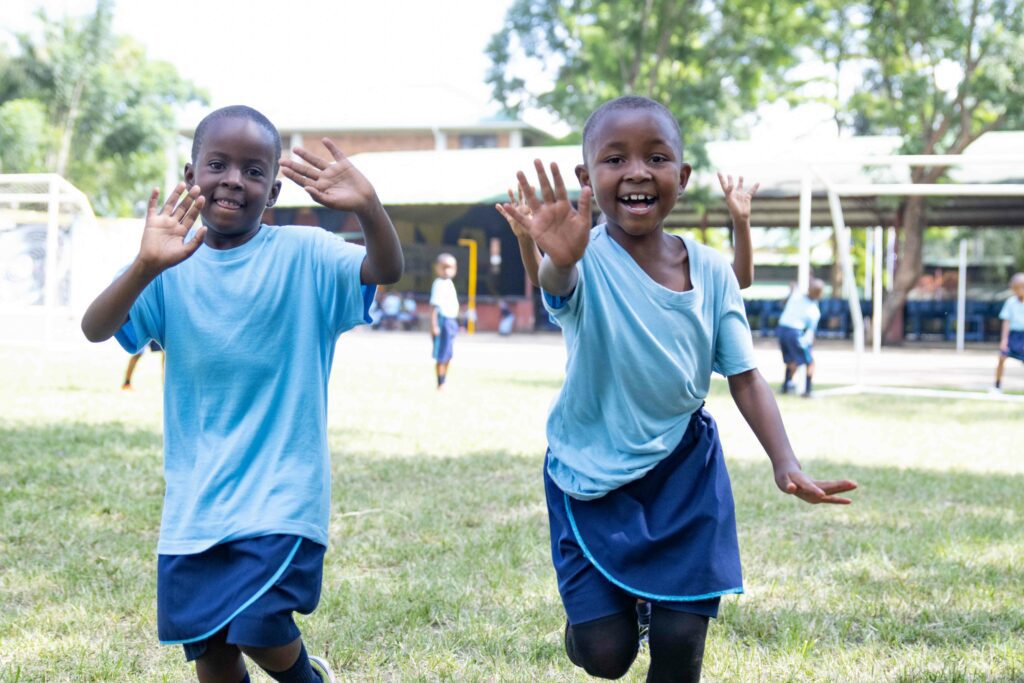
At The School of St Jude, students have the chance to learn outside the classroom through participation in extracurricular activities (ECAs). These include twice weekly sports practices and weekly clubs.
Let’s take a closer look at the numbers on ECAs at St Jude’s!

Over the past two years, The School of St Jude has been making a concerted effort to improve and expand its Sports Program. More sports have been added, more coaches have been hired and more time has been dedicated to sports practice.
After all this hard work, St Jude’s decided it was time to put its student athletes’ skills to the test, with its very first interschool basketball competition. In late March, St Jude’s hosted the Bluesand Basketball Tournament at Smith Campus.
Six local schools paid an entry fee and fielded 5 boys teams and 4 girls teams.
“The tournament aimed to get the students competing at the highest level, having fun, fundraising, and building good relationships with other schools,” says Mr Mziray, the school’s Sports Officer and one of the tournament organisers.

The competition was played round-robin style, so all teams of the same gender got the chance to play against each other. This made for a busy day of competition, but the enthusiastic players took it all in their stride.
In addition to these main competitions, there were challenges for individual players. Mr Mziray explains, “We had three challenges in between the rounds which were One vs One, Free Throw and Three-Point Shooting.”
These challenges proved popular, with plenty of players signing up to test their skills.
In addition to the on-court action, there was also a busy food tent where hungry competitors could purchase lunch. The St Jude’s teams all enjoyed hot dogs – definitely a change from their nutritious school meals!
At the end of the day, the boys’ team was thrilled to place second in their section. The girls’ team just missed out on a place, but had a great day nonetheless.

Placing or no placing, Mr Mziray judges the day to be a success. “As our first-ever sports tournament, it was successful. We plan to host more tournaments in other sports like football, netball, volleyball, and athletics in the future,” Mr Mziray reports.
“We encourage our students to participate more in sports activities and allow them to compete with different schools. We are showing other schools how serious we are in sports, nurturing our students’ morale, developing a sports culture and building a network with other schools,” he reflects.
The Bluesand Basketball Tournament is the first of many to come at St Jude’s. Through competitions like this, students get the chance to hone their physical skills, improve their teamwork and meet peers from different schools. It might seem like ‘just sport’ to some, but St Jude’s knows that opportunities like this offer students so much more than the chance to win a medal.